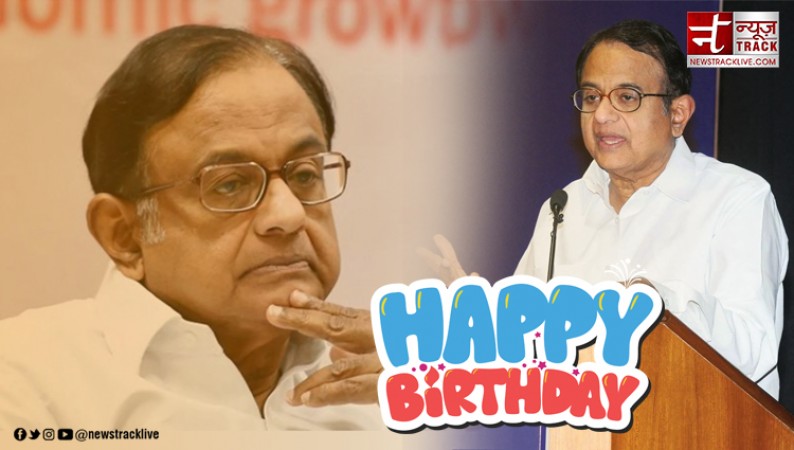
On September 16, we commemorate the birthday of one of India's most prominent political figures, Palaniappan Chidambaram, often affectionately known as P. Chidambaram. With a career spanning decades, Chidambaram has made significant contributions to Indian politics and governance. Let's delve into his remarkable journey and discover some intriguing facets of his life.
Born in Kanadukathan, Sivaganga District, Tamil Nadu, Palaniappan Chidambaram has always been known for his sharp intellect and dedication. He pursued a legal career, starting his practice in the Madras High Court and eventually becoming a senior advocate in 1984. His legal prowess extended to both Delhi and Chennai, where he actively practiced in the Supreme Court and various High Courts across India.
Chidambaram's political journey began when he joined the Indian National Congress (INC) in 1972. That same year, he became a member of the All India Congress Committee (AICC). He assumed the role of Youth Congress President of Tamil Nadu from 1973 to 1976, showcasing his early leadership skills within the party.
In 1984, Chidambaram achieved a significant milestone by winning a seat in the Lok Sabha from the Sivaganga constituency of Tamil Nadu, representing the Congress Party. This marked the commencement of his illustrious political career.
His dedication to public service and his acumen in economic matters eventually led him to be appointed as the Finance Minister of India in 1996 when he joined the Tamil Manila Congress (TMC). Later, he was elected to the Lok Sabha for the fifth time in 1998.
Chidambaram's most notable tenure as Finance Minister was during the Manmohan Singh government from 2004 to 2014. He played a pivotal role in steering India through critical economic challenges, implementing a series of reforms to boost economic growth, address fiscal deficits, and attract foreign investments.
However, Chidambaram's political journey wasn't without its share of controversies. In September 2011, he was accused of involvement in the 2G Spectrum Scam by Subramanian Swamy. Although the accusations were serious, both a CBI Court and the Supreme Court ultimately cleared him of any wrongdoing.
In addition to his professional challenges, Chidambaram faced a dramatic moment in 2009 when a Sikh journalist, Jarnail Singh, threw a shoe at him during a press conference to express displeasure over the handling of the 1984 anti-Sikh riots.
Chidambaram's career was marked by accusations of corruption, particularly in scandals related to wireless-telephone licenses and foreign investments in the Indian telecommunications sector. Despite these allegations, he was either cleared by his ministerial colleagues or the courts dismissed the cases.
One instance where Chidambaram did take responsibility was in 1992 when he resigned as Commerce Minister due to his family's investment in a company involved in securities fraud.
The Chidambaram family has also faced controversies, with his son, Karti Chidambaram, being accused of corruption in cases such as Aircel-Maxis and INX. These cases are currently under investigation by the CBI and ED.
Chidambaram is widely recognized for his strong stance on dealing with Maoist guerrillas during his tenure as Home Minister and for his role as a reformist Finance Minister. His commitment to public service and his contributions to India's economic growth continue to be acknowledged and debated in political circles.
As we celebrate Palaniappan Chidambaram's birthday on September 16, we reflect on the intricate tapestry of his political career-- a journey marked by both achievements and challenges. His legacy in Indian politics remains an enduring one, making him a figure worth remembering and discussing in the annals of the nation's history.